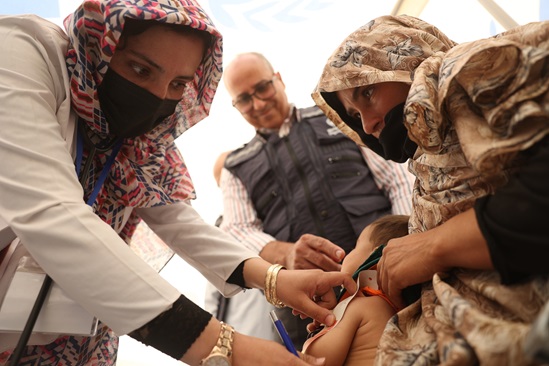
Currently, some of the most pressing health issues globally are:
- Mental Health Challenges: The prevalence of anxiety, depression, and other mental health issues is on the rise, exacerbated by factors such as the COVID-19 pandemic, social isolation, and economic stress.
- Chronic Diseases: Conditions like diabetes, heart disease, and cancer continue to be a significant burden on global health, driven by unhealthy lifestyles, aging populations, and lack of access to quality healthcare.
- Antimicrobial Resistance: The increasing resistance of bacteria and other microbes to antibiotics and other drugs poses a major threat to public health, making infections harder to treat and increasing the risk of complications.
- Climate Change and Health: The effects of climate change, such as extreme weather events, air pollution, and food insecurity, are having a significant impact on human health, particularly in vulnerable populations.
- Emerging Infectious Diseases: The ongoing threat of new and re-emerging infectious diseases, such as COVID-19, highlights the importance of global health security and preparedness.
These issues highlight the need for comprehensive and collaborative approaches to address the complex challenges facing global health today.

A Detailed Overview of Current Global Health Issues
The landscape of global health is constantly evolving, with new challenges emerging alongside persistent concerns. In 2023, we find ourselves grappling with a complex tapestry of health issues that require immediate attention and concerted effort. Let’s delve deeper into some of the most pressing health concerns facing the world today.
1. The Mental Health Crisis
The world is experiencing a mental health crisis of unprecedented scale. Rates of anxiety, depression, and other mental health disorders are on the rise, impacting individuals of all ages and backgrounds. The COVID-19 pandemic exacerbated pre-existing challenges, as social isolation, economic uncertainty, and grief took their toll.
- Key Challenges: Limited access to mental healthcare, particularly in low- and middle-income countries, is a major obstacle. Stigma surrounding mental illness persists, preventing individuals from seeking help. There is also a need for greater investment in research to understand the causes of mental health disorders and develop effective interventions.
- Potential Solutions: Expanding access to mental health services through telemedicine, community-based initiatives, and task-sharing with non-specialist providers can improve reach. Public education campaigns to reduce stigma and promote mental health awareness are crucial. Research into novel treatments and preventative measures is also vital.

2. The Burden of Chronic Diseases
Chronic diseases, including cardiovascular disease, cancer, diabetes, and chronic respiratory conditions, remain a significant burden on global health. These conditions are responsible for a large proportion of deaths and disability worldwide, with low- and middle-income countries disproportionately affected.
- Key Challenges: Unhealthy lifestyles, including tobacco use, unhealthy diets, and physical inactivity, are major risk factors for chronic diseases. Lack of access to affordable healthcare and preventive services further exacerbates the problem.
- Potential Solutions: Promoting healthy behaviors through public health campaigns and policies can help prevent chronic diseases. Expanding access to affordable healthcare and preventive services, including screening and early detection programs, is crucial. Strengthening health systems to manage chronic diseases and provide quality care is also essential.
3. The Antimicrobial Resistance Threat
The rise of antimicrobial resistance (AMR), where bacteria, viruses, fungi, and parasites become resistant to drugs, is a growing public health concern. AMR reduces the effectiveness of existing treatments for infections, increasing morbidity, mortality, and healthcare costs.
- Key Challenges: Overuse and misuse of antibiotics, both in humans and animals, are major drivers of AMR. Lack of infection prevention and control measures, as well as limited access to new antibiotics, exacerbate the problem.
- Potential Solutions: Promoting responsible antibiotic use, including improving prescribing practices and educating the public, is essential. Strengthening infection prevention and control measures in healthcare settings and communities can also help. Investment in research and development of new antibiotics and alternative treatments is crucial.

4. Climate Change and Health
The impacts of climate change on health are becoming increasingly evident. Extreme weather events, air pollution, food and water insecurity, and vector-borne diseases all threaten human health and wellbeing. Climate change is expected to widen health inequalities and disproportionately affect vulnerable populations.
- Key Challenges: Addressing climate change requires global cooperation and reducing greenhouse gas emissions. Adaptation measures are necessary to mitigate the health impacts of climate change, particularly in vulnerable communities.
- Potential Solutions: Transitioning to clean energy sources, improving energy efficiency, and promoting sustainable transportation can reduce greenhouse gas emissions. Investing in public health infrastructure, early warning systems, and disaster preparedness can help communities adapt to climate change and protect health.
5. Emerging and Re-emerging Infectious Diseases
The COVID-19 pandemic demonstrated the ongoing threat of emerging and re-emerging infectious diseases. Global interconnectedness, environmental changes, and human-animal interaction contribute to the emergence and spread of infectious diseases.
- Key Challenges: Strengthening global health security and preparedness is vital to detect and respond to outbreaks early. Enhancing surveillance systems, improving laboratory capacity, and stockpiling essential medical supplies are crucial.
- Potential Solutions: Investing in research and development of new diagnostics, treatments, and vaccines for emerging infectious diseases is essential. Strengthening global cooperation and coordination in disease surveillance and outbreak response is crucial. Promoting public health measures, such as vaccination and hygiene practices, can help prevent the spread of infections.

Conclusion
The global health landscape is complex and multifaceted, requiring concerted efforts from governments, healthcare providers, researchers, and communities worldwide. Addressing these pressing health concerns necessitates innovative solutions, sustainable investments, and equitable access to healthcare services. The challenges are considerable, but with collaboration and a commitment to global health equity, we can forge a path towards a healthier future for it.
Mental Health:
- Q: What factors are contributing to the rise in mental health issues globally?
- A: Factors such as the COVID-19 pandemic, social isolation, economic stress, and ongoing conflicts are contributing to the increased prevalence of anxiety, depression, and other mental health disorders.
- Q: How can we improve access to mental healthcare, especially in low-resource settings?
- A: Telemedicine, community-based initiatives, and task-sharing with non-specialist providers can help expand access. Reducing stigma through public education campaigns and increasing investment in mental health research are also vital.
Chronic Diseases:
- Q: What are the main lifestyle factors that contribute to the development of chronic diseases?
- A: Unhealthy diets, tobacco use, physical inactivity, and excessive alcohol consumption are significant risk factors for chronic diseases such as cardiovascular disease, cancer, and diabetes.
- Q: How can we prevent and manage chronic diseases more effectively?
- A: Promoting healthy behaviors through public health campaigns and policies, expanding access to affordable healthcare and preventive services, and strengthening health systems to manage chronic conditions are all critical.
Antimicrobial Resistance:
- Q: What are the main drivers of antimicrobial resistance?
- A: Overuse and misuse of antibiotics in both humans and animals, along with inadequate infection prevention and control measures, contribute to the development of drug-resistant microbes.
- Q: What steps can we take to combat antimicrobial resistance?
- A: Promoting responsible antibiotic use, strengthening infection prevention and control practices, and investing in the research and development of new antibiotics and alternative treatments are crucial.
Climate Change and Health:
- Q: How does climate change impact human health?
- A: Climate change leads to extreme weather events, air pollution, food and water insecurity, and an increase in vector-borne diseases, all of which pose serious health risks.
- Q: What actions are needed to address the health impacts of climate change?
- A: Transitioning to clean energy sources, reducing greenhouse gas emissions, and investing in public health infrastructure and adaptation measures are essential.
Emerging and Re-emerging Infectious Diseases:
- Q: What factors contribute to the emergence and spread of new infectious diseases?
- A: Global interconnectedness, environmental changes, and human-animal interaction can facilitate the emergence and spread of infectious diseases.
- Q: How can we strengthen global health security and preparedness for future outbreaks?
- A: Investing in research and development for new diagnostics, treatments, and vaccines, improving disease surveillance and laboratory capacity, and promoting global cooperation are critical.
These questions and answers provide a starting point for exploring the complex and interconnected nature of global health challenges. Addressing these issues will require sustained effort, collaboration, and a commitment to global health equity.
“Pressing Global Health Concerns: A Comprehensive Overview”
This heading is accurate, informative, and highlights the urgency of the issues discussed. It also conveys that the content provides a broad perspective on the major health challenges facing the world today.
